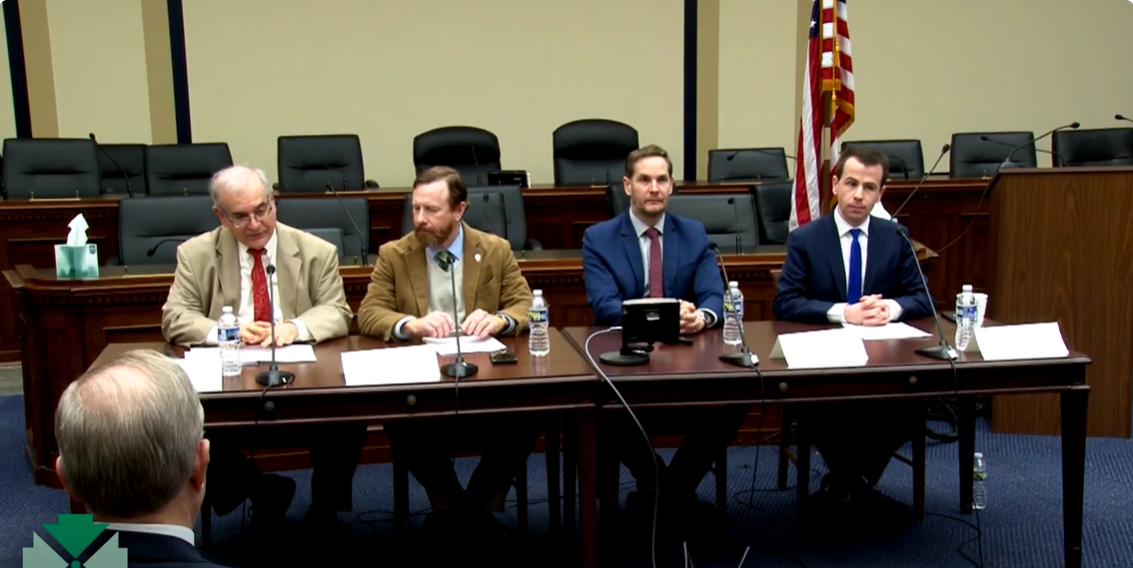The Washington-based Center for Immigration Studies hosted a panel discussion on 10th January 2024 with the intent to explore current asylum laws in the United States and Europe, their effects on illegal immigration, and proposals for reform. Members of the recently established International Network for Immigration Research (INIR), which consists of like-minded think tanks in the United States, Israel, Hungary, France, and the United Kingdom, examined how their respective countries are handling their current asylum crises and address the shared challenge of immigration control.
Members of the panel discussion assessed whether the asylum system that emerged after the end of WWII should be re-thought, and analyzed how the U.S. can learn from the European Union’s New Pact on Migration and Asylum that was passed in December 2023.
Eric Ruark, Director of Research of NumbersUSA talked about the political aspect of the obstacles that the U.S. faces when it comes to reforming its asylum system. He highlighted that the U.S. government perpetuating fraud and abuse on a vast scale has led to having the number of non-detained aliens doubled since 2021, from 3.4 million to 6.2 in 2023. He also pointed out that the border crisis on the U.S.–Mexican border is the result of the deliberate and willful decision-making by the current Biden administration, which lets almost everyone in through the back door. Emphasizing the need for a greater authority of the Congress over immigration and for affirming the national sovereignty of the U.S. in this field, he stated that the legislative branch needs to come up with a new overall approach to asylum law to prevent illegal immigration.
Viktor Marsai, Director of the Migration Research Institute stated that the European migration and asylum system is massively overburdened and has been dysfunctional since 2015. He recalled in his speech that one of the main obstacles to deter irregular migration can be traced back to the lack of political will. Consequently, he added, the newly passed EU Pact on Migration and Asylum is an inadequate framework to stop the flow of migrants because it offers limited solution for the problems that emerged in the past but keeps a lot of bad practices. He also examined the Hungarian perspective of irregular migration to the EU and drew attention to the fact that Hungary provided support for more than one million refugees fleeing warn-torn Ukraine after 2022.
Nicolas Pouvreau-Monti, co-founder of the Paris-based L’Observatoire de l’immigration et de la démographie pointed out that the gradual extension of granting asylum protection has ended up constituting a major immigration channel in Europe, and notably in France, which is now completely out of political control. Between 2009 and 2022, France has witnessed an increase of 227% in the annual number of first-time asylum claims registered in the country, and the 2023 data is expected to be even higher than the 2022 data. He also mentioned that the acceptance rate for asylum applications in France is now around 40% and that 96% of the rejected asylum seekers remain on French territory. He concluded that instead of using a normative and moralizing discourse, the European Union and national governments should address asylum as a political issue that should be subject to democratic accountability.
Finally, Mark Krikorian, executive director of the Washington-based Center for Immigration Studies argued in his speech that the current asylum regime established after WWII has become dysfunctional with the changes after the end of the Cold War and it should be abolished as it currently exists because it reframes immigration as a right rather than a privilege. He pointed out that this unsustainable asylum system represents a surrender of sovereignty by nation states, a practice we must put an end to. He also noted that ending asylum will not erase the problem because people will stay mobile. However, with active diplomacy, as well as developing and renewing a network of countries that we can send people to who illegally come into our country could be an effective mitigation strategy.
